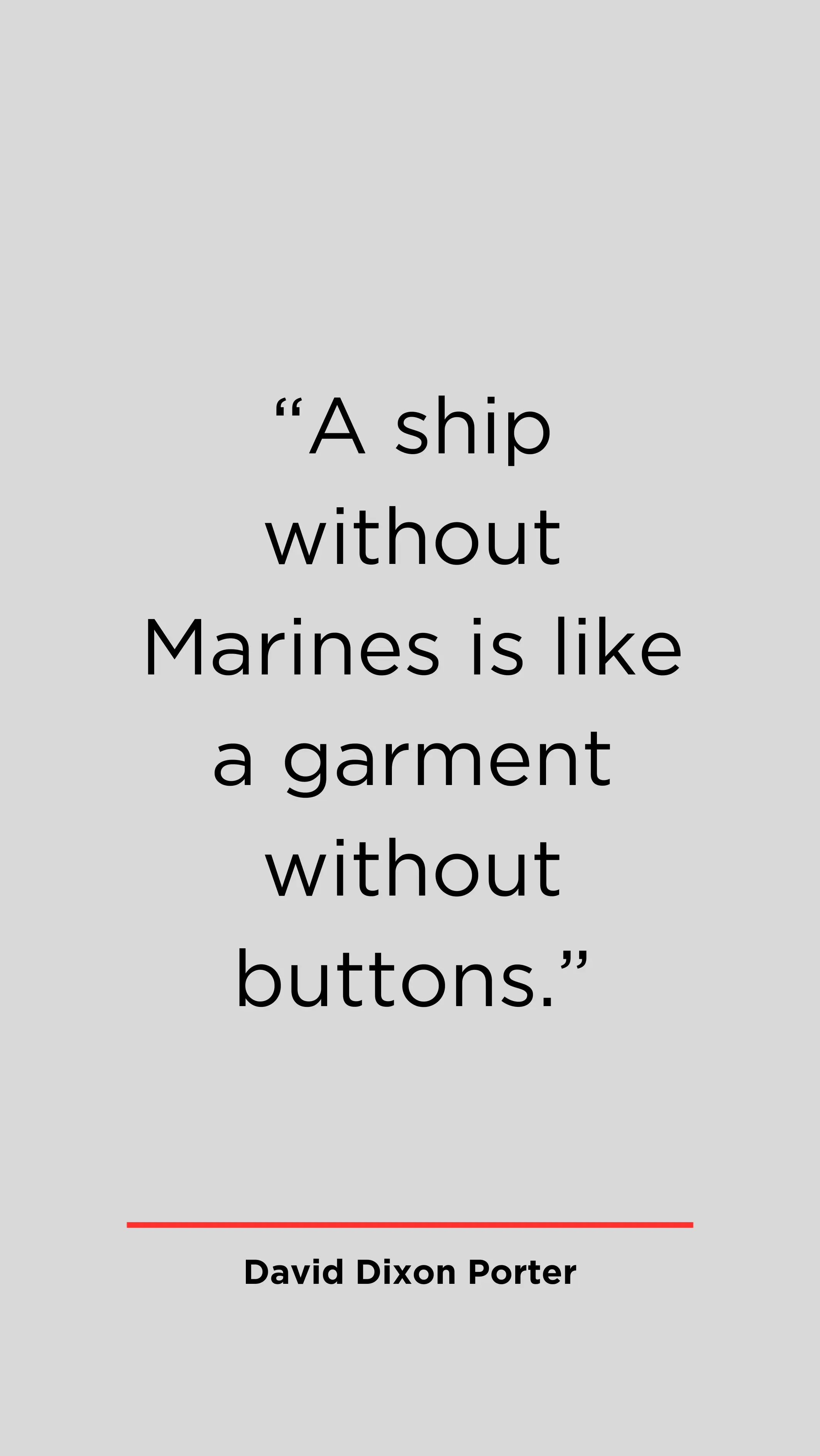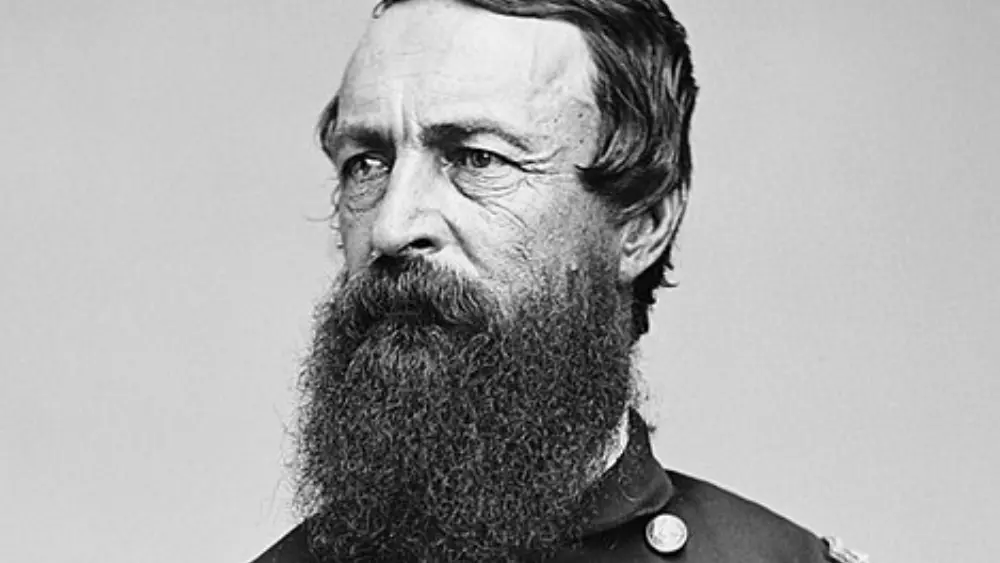David Dixon Porter, born on June 8, 1813, into a distinguished naval family, rose to prominence as a Union naval officer during the American Civil War. His contributions to naval strategy, especially in the era of ironclad warfare, solidified his legacy as a key figure in American naval history.
Naval Heritage and Early Years at Sea
Porter’s naval heritage and upbringing provided him with a deep understanding of maritime strategy and tactics. His early years at sea, marked by a combination of rigorous training and practical experience, laid the foundation for a career that would see him rise to prominence in the U.S. Navy. Immersed in the dynamic and often perilous world of naval operations, Porter’s early exposure to the challenges of seafaring instilled in him the skills and leadership qualities that would define his later contributions to the naval history of the United States.
His familial connections to notable naval figures not only exposed him to the intricacies of naval warfare but also provided him with valuable mentorship. Under the guidance of his father and adopted brother, Porter navigated the seas during a time when the U.S. Navy was evolving and expanding its capabilities. These early experiences shaped Porter’s perspective on naval strategy and his dedication to serving his country at a crucial juncture in its history.
David Dixon Porter: Naval Leadership in the Civil War
In the Civil War, Porter’s naval leadership was instrumental in securing Union control over vital water routes. Appointed to command the Mississippi River Squadron, he demonstrated remarkable strategic acumen and adaptability. Porter’s innovative tactics, including the effective use of ironclad vessels, contributed significantly to the Union’s success in gaining control of key waterways, thereby limiting Confederate mobility and access to crucial resources. His commitment to cutting-edge naval technology and his ability to coordinate complex operations established him as a visionary naval leader during a pivotal period in American history.
Porter’s naval campaigns were not confined to the rivers alone. He played a key role in the Union victory at the Battle of Mobile Bay, a strategic engagement that further solidified his reputation as an effective and bold naval commander. His leadership during these critical moments showcased his dedication to the Union cause and his prowess in employing naval power as a decisive force in the broader context of the Civil War.
The Siege of Vicksburg and Riverine Warfare
During the Siege of Vicksburg, David Dixon Porter’s expertise in riverine warfare proved pivotal in the Union’s successful campaign. Leading the Mississippi River Squadron, Porter utilized a combination of ironclad gunboats and innovative naval strategies to besiege the Confederate stronghold. The Union’s control of the Mississippi River was a strategic triumph, dividing the Confederacy and cutting off crucial supply lines, thereby isolating Confederate forces in the West from those in the East.
Porter’s mastery of riverine warfare during the Siege of Vicksburg showcased his ability to adapt naval tactics to the challenging terrain of river warfare. The Union’s triumph in Vicksburg was a significant turning point in the Civil War, demonstrating the effectiveness of coordinated land and naval operations and underscoring Porter’s crucial role in shaping the outcome of key military campaigns.
David Dixon Porter: Collaboration with General Grant
David Dixon Porter’s collaboration with General Ulysses S. Grant exemplified the success of joint Army-Navy operations during the Civil War. As part of the unified command structure, Porter worked closely with Grant, demonstrating exceptional coordination between land and naval forces. The Vicksburg campaign stands out as a prime example of their successful partnership, where the Union Army and Navy seamlessly combined their efforts to achieve strategic objectives.
The effectiveness of Porter and Grant’s collaboration was a key factor in the Union’s military successes. Porter’s naval expertise, coupled with Grant’s strategic acumen, created a formidable force that played a crucial role in pivotal campaigns like the Siege of Vicksburg. Their joint operations not only secured significant victories for the Union but also set a precedent for future military collaborations, showcasing the importance of unified efforts across different branches of the armed forces.
Prominence in Ironclad Warfare
David Dixon Porter’s prominence in the era of ironclad warfare underscored his keen understanding of evolving naval technologies during the Civil War. The shift from traditional wooden warships to ironclads represented a significant leap in naval capabilities, and Porter was quick to recognize their strategic advantages. Advocating for the use of ironclads, such as the USS Monitor and the USS Benton, he demonstrated a forward-looking approach to naval warfare.
Porter’s effective utilization of ironclads played a pivotal role in reshaping naval engagements. These technologically advanced vessels provided increased protection and firepower, offering a distinct advantage over traditional ships. Porter’s successful integration of ironclads into the Union Navy not only showcased his adaptability as a naval leader but also highlighted the importance of embracing technological innovations to maintain military superiority during a time of rapid change.
David Dixon Porter: Command of the North Atlantic Blockading Squadron
David Dixon Porter’s leadership took on a broader scope when he assumed command of the North Atlantic Blockading Squadron during the latter stages of the Civil War. In this role, Porter played a crucial part in orchestrating blockade operations along the Atlantic coast, implementing a strategy aimed at strangling Confederate supply lines and isolating the Southern states from international support. His adept management of naval forces in the North Atlantic contributed significantly to the Union’s overall naval supremacy.
Under Porter’s command, the blockade strategy became a formidable weapon in the Union’s arsenal. By limiting the Confederacy’s access to crucial resources and disrupting its maritime trade, Porter’s efforts had a substantial impact on the economic and logistical capabilities of the Southern states. His strategic vision and effective execution in the North Atlantic played a vital role in the Union’s overall military strategy, showcasing Porter’s enduring influence on naval operations during a pivotal period in American history.
Post-War Career and Legacy
In the post-war era, David Dixon Porter continued to contribute to the United States Navy, reaching the pinnacle of his career with the rank of admiral. Beyond his wartime achievements, Porter took on significant roles, including serving as the superintendent of the United States Naval Academy. In this role, he significantly influenced the education and training of future naval officers, leaving a lasting impact on the institution.
Porter’s legacy extends beyond his military service. His strategic brilliance and leadership during the Civil War cemented his reputation as one of the foremost naval commanders of his time. His advocacy for innovative naval technologies, such as ironclads, showcased his forward-thinking approach to maritime warfare. The impact of his contributions resonated in the annals of naval history, leaving a lasting imprint on the development of naval strategy and tactics.

David Dixon Porter: Contributions to Naval Tactics and Strategy
David Dixon Porter’s legacy in naval tactics and strategy is marked by his pioneering contributions to the evolution of naval warfare. During the Civil War, Porter played a pivotal role in redefining naval tactics, particularly in the context of riverine warfare. His mastery of these inland waterways and innovative use of ironclad gunboats demonstrated a keen understanding of the strategic significance of controlling key water routes.
Porter’s emphasis on the integration of ironclads into naval fleets represented a groundbreaking shift in naval strategy. Recognizing the potential of these technologically advanced vessels, such as the USS Monitor and USS Benton, he championed their use in combat. This foresight not only influenced the outcome of critical battles, like the Siege of Vicksburg, but also had a lasting impact on naval doctrine. Porter’s strategic insights and commitment to adapting to emerging technologies solidified his position as a trailblazer in naval tactics and strategy, shaping the future of naval warfare for generations to come.











